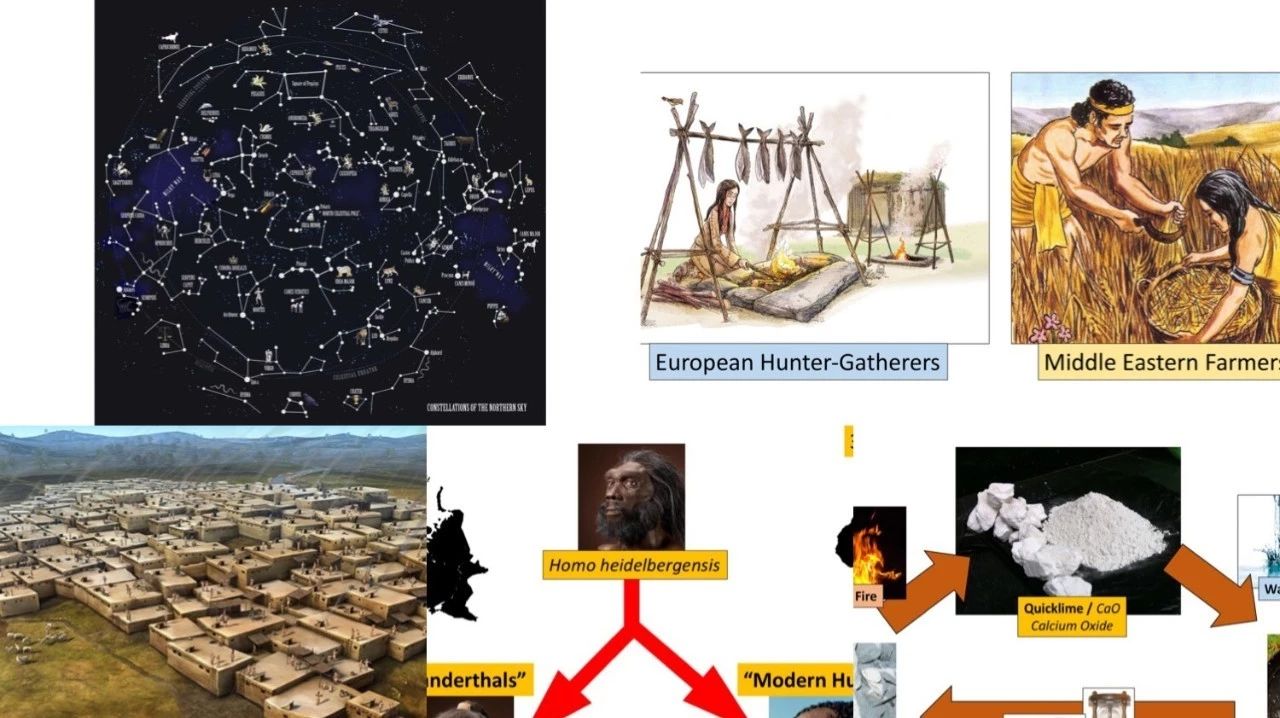Fantastic History

In history, humans evolved and changed their way of life. As we progressed, problem and disasters tried to prevent us from going forward. However, humans never succumbed to nature and disasters. Instead, they faced them and successfully got over them.
Through six lessons of this American History class, I learned a lot about humans and our history. We studied human evolution, how humans evolved from Australopithecus to modern Homo sapiens and behaviorally modern humans. It was really interesting to learn about it. In addition, we also learned about the first towns such as Jericho and Catalhoyuk. I was shocked when I learned that these towns were about ten thousand years old, and the remains are still standing today. Moreover, we studied ancient religion and art. The wall paintings were fascinating and the sky burial was unique. The first human tools, the Stone Age, and the Copper Age were fantastic too. It was also hard to believe that farming and domestication could date back to the Younger Dryas, which lasted from 10,900 B.C to 9,700 B.C.
Learning about history let me have a lot of thoughts. Firstly, humans were just great. Throughout history, humans had to deal with very harsh environments. For example, nature didn’t provide good environments and weather all the time, and large carnivores like lions attacked humans. The evolution time was very long, but humans were tenacious, they never gave up. Therefore, humans ultimately reached the top of the Food Chain. However, humans needed to have a balance with nature or disaster would strike. Secondly, even though disaster was terrible, it could also bring opportunities for human beings. For instance, the shrinkage of forests forced humans to walk, which forced them to think about survival. Consequently, humans invented useful tools, the use of fire, and language. Another example was the Younger Dryas, which compelled the Natufians to leave their homeland. But the Natufians invented farming to survive in the new environment, which allowed them to increase their population, and turned villages to towns. The Black Death in Europe caused the death of 80% of the population. However, after many generations, the new population developed immunity to the Black Death. Third, humans are emotive. For example, the Longhouse people lived together in life, but they also wanted to live together when they died, so they built the passage tombs. Fourth, humans are intelligent. When they evolved, they developed their brains, not their bodies. Therefore, they invented tools, fire, and language. Last but not least, we had the same ancestor. So we should care about, support, and understand each other.
After six classes, I really wanted to learn more about history and humans. I also learned that even though the archaeologists suffered from harsh weather and a tough environment, their job was worthy and had a sense of accomplishment. Therefore, we should choose the job we like and hope it would be worth doing it like the archaeologists and historians in the future.
- 本文标签: 原创
- 本文链接: http://www.jack-utopia.cn//article/554
- 版权声明: 本文由Jack原创发布,转载请遵循《署名-非商业性使用-相同方式共享 4.0 国际 (CC BY-NC-SA 4.0)》许可协议授权










